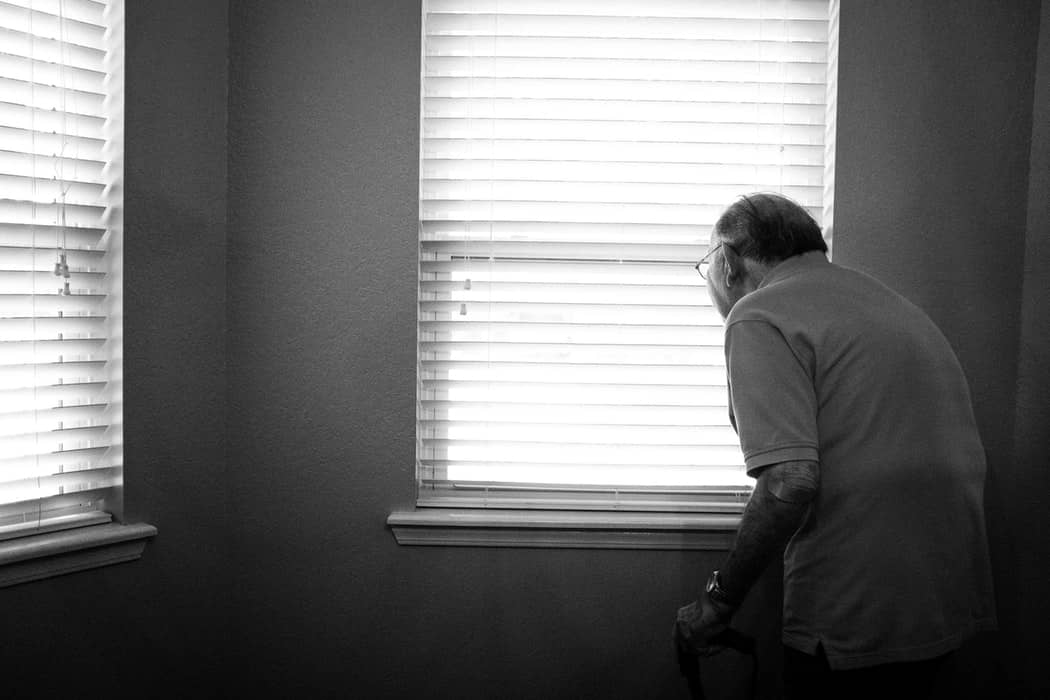Sundowner’s Syndrome: What It Is & How To Help
When a person suffering from dementia experiences an increase in symptoms as the sun is going down, this is known as “Sundowner’s Syndrome”. Symptoms of dementia include, but aren’t limited to, changes in mood or behavior, increased forgetfulness, confusion, and difficulty performing common tasks.
Sundowning occurs in the late afternoon or early evening and is an increase in already present symptoms and not the development of new symptoms. Although each dementia patient’s symptoms are unique to them, the pattern in which they are expressed just before nightfall follows a particular pattern.
Symptoms of Sundowner’s Syndrome
 Not every person with Alzheimer’s Disease or other forms of dementia will experience Sundowner’s Syndrome. The Syndrome affects one in every five Alzheimer patients, with Alzheimer’s Disease being the most common form of dementia. In a study conducted by the National Institute of Health, 53% of participants experienced irritability, 47.4% displayed uncharacteristic nighttime behavior, and 42.1% demonstrated aggressiveness.
Not every person with Alzheimer’s Disease or other forms of dementia will experience Sundowner’s Syndrome. The Syndrome affects one in every five Alzheimer patients, with Alzheimer’s Disease being the most common form of dementia. In a study conducted by the National Institute of Health, 53% of participants experienced irritability, 47.4% displayed uncharacteristic nighttime behavior, and 42.1% demonstrated aggressiveness.
A caregiver may find it difficult to notice the early signs of Sundowner’s Syndrome as they are often quite subtle, and don’t seem to follow any foreseeable pattern. However, with time symptoms become more pronounced and regular. Oftentimes, lasting well into the night making it particularly difficult to care for a person with this type of affliction.
Sundowner’s Syndrome vs. Delirium
The first step in caring for someone with Sundowner’s Syndrome is to distinguish it from delirium. According to the Cleveland Clinic, “Delirium happens when a person has sudden confusion or a sudden change in mental status”. Causes of delirium may include a stroke, drug interactions, low blood sugar, a urinary tract infection, stroke, head injury, lung or heart trouble, and carbon monoxide poisoning.
In contrast, Sundowner’s Syndrome tends to be sudden, temporary and occurs only between certain hours. It is best to see a doctor who can best distinguish between the two ailments. Seek immediate medical attention whenever you see a loved one showing new signs of confusion or agitation. Once you’ve sought the advice of a medical expert, you can begin to offer the best form of support.
How To Help
Doctors don’t yet know why the phenomenon occurs, but there are ways to better care for a person with Sundowner’s Syndrome. The following tips were proposed by Medical News Today:
- Engage your loved one in an enjoyable and relaxing activity during the late afternoon and early evening.
- Combat restlessness by taking them on an evening walk.
- Create and help them stick to a daily routine.
- Schedule more challenging activities earlier in the day.
- Unless it is beneficial for your loved one, try to limit daytime naps.
- Provide spaces that are well lit, but that are not too bright or too dark.
- Ensure a harmonious environment free from environmental triggers like loud noises.
- Monitor screen time to limit violent or aggressive presentations.
- Design a relaxing environment filled with items that help them feel at ease, like candles or soothing music.
- Note when and how their mood and behavior changes.
- Seek professional medical advice whenever you notice changes in mood or behavior.
The AARP also suggests validating and distracting a person who is “sundowning”. Instead of trying to reason with a person in the midst of increased agitation and confusion, it is best to validate what they are feeling to let them know you are listening, even when it may not make logical sense to you. Once your loved one feels understood, you may then direct their attention away from what is making them feel agitated and toward an activity or conversational theme they enjoy. Trying to reason with a person with Sundowner’s Syndrome may only increase symptoms.
As every person caring for a loved one with dementia knows, it can be a taxing and overwhelming undertaking, with or without the presence of Sundowner’s Syndrome. Caregivers should be mindful to practice self-care. If a caregiver is not relaxed, they may trigger the person they are most trying to soothe. Additionally, finding a support group either online or in-person can help to ease some of the burden and mental fatigue caregivers experience.
Call Us
24-Nursing Care is a leading coordinator of nursing care and companion referral services for individuals who want to remain independent and outside of a nursing home setting. As a caregiver referral service, we can help you find the care that is right for your loved one, taking some of the stress off of you. For a free in-home consultation, call us today at (786) 518-3622 (Miami-Dade) or at (954) 949-1332 (Broward).
Sources:
https://keystone.health/sundowners-syndrome
https://www.medicalnewstoday.com/articles/314685#symptoms
https://www.ncbi.nlm.nih.gov/pmc/articles/PMC6907707/
https://www.24-7nursingcare.com/avoid-caregiver-burnout-practice-self-care
https://www.aarp.org/caregiving/health/info-2017/ways-to-manage-sundown-syndrome.html





